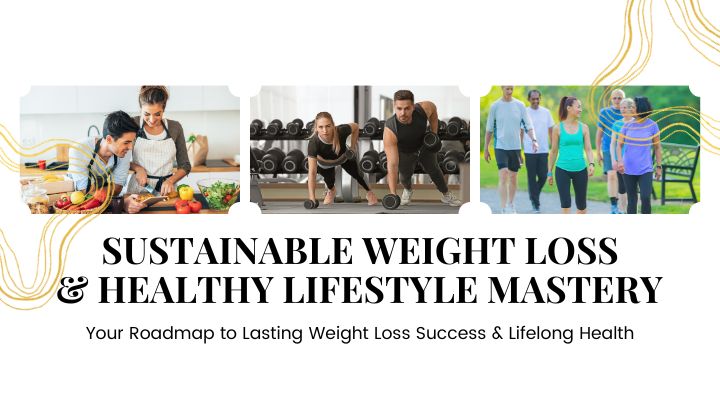Overcome Emotional Eating for a Healthier Relationship with Food
Are you an emotional eater? Emotional eating is a widespread behavior where individuals turn to food as a coping mechanism for various emotions, be it stress, sadness, or even happiness. While it may bring temporary comfort, it often leads to a detrimental cycle of guilt, negative emotions, and potential weight gain. In this comprehensive guide, we’ll delve into effective strategies to stop emotional eating and cultivate a healthier relationship with food.
Understanding Emotional Eating
Emotional eating is a nuanced behavior that often goes beyond the basic need for nourishment. It’s a coping mechanism, a way to deal with emotions. Identifying emotional triggers is like decoding the messages your body sends during different emotional states. These triggers can range from external situations to internal feelings, and understanding them is pivotal in breaking free from emotional eating.
Recognizing that emotional eating is a coping mechanism, individuals can start to explore healthier alternatives. Instead of reaching for food as the default response to emotions, incorporating activities like taking a short walk, practicing mindfulness, or engaging in a hobby can provide alternative outlets for emotional expression.
The Impact of Emotional Eating on Health and Well-being
The consequences of emotional eating extend beyond the immediate emotional comfort it provides. From a physical perspective, regularly turning to food for emotional solace can result in weight gain, digestive issues, and overall poor health. Recognizing the holistic impact of emotional eating is crucial for initiating positive change.
Understanding the link between emotional eating and physical health is the first step toward breaking the cycle. Weight gain, often a consequence of frequent emotional eating, can lead to various health issues. Addressing the root cause involves not only changing eating habits but also developing a more holistic approach to well-being.
Identifying Your Emotional Eating Triggers
Triggers for emotional eating can be as varied and unique as the individuals experiencing them. They could be specific situations, such as feeling overwhelmed at work or personal conflicts, or internal feelings like loneliness or boredom. Identifying these triggers is akin to putting together a puzzle; it helps in understanding the root causes of emotional eating and enables individuals to address these issues effectively.
By pinpointing personal triggers for emotional eating, individuals gain a deeper understanding of their emotional landscape. This awareness empowers them to develop targeted strategies to navigate these triggers without resorting to food. It’s like creating a personalized toolkit for emotional well-being.
Mindful Eating Techniques
Mindful eating is not just about what you eat but how you eat. It’s an intentional and present approach to meals. When practicing mindful eating, individuals savor each bite, paying attention to textures, flavors, and how the food makes them feel. This practice encourages a healthier relationship with food by fostering a conscious awareness of eating habits and promoting gratitude for nourishing the body.
Incorporating mindful eating techniques involves a shift in perspective. It’s about viewing meals as a sensory experience rather than a task to complete. By focusing on the present moment during meals, individuals can cultivate a deeper appreciation for food and reduce the likelihood of turning to it solely for emotional comfort.
Coping Mechanisms for Stress and Emotional Eating
Stress often acts as a catalyst for emotional eating. Understanding that there are alternative coping mechanisms on how to stop emotional eating is a crucial step in breaking this cycle. Engaging in activities like meditation, deep breathing exercises, or journaling helps in redirecting the emotional response away from food. These activities not only manage stress but also contribute to overall well-being.
Stress management is a key component of overcoming stress eating. Instead of viewing stress as an uncontrollable force, individuals can adopt a proactive approach. Implementing stress-reduction techniques such as deep breathing or progressive muscle relaxation can become powerful tools in the arsenal against stress eating.
Building Healthy Habits for Emotional Wellness
Creating a supportive environment for emotional wellness involves more than just modifying eating habits. It’s about incorporating regular self-care practices, ensuring adequate sleep, and building a robust support system. Seeking professional help, such as talking to a counselor or therapist, can provide additional tools for developing healthier coping mechanisms and fostering emotional well-being.
Building healthy habits involves a holistic approach to wellness. It’s not just about what you eat but how you live. Establishing a routine that includes regular exercise, sufficient sleep, and meaningful social connections contributes to overall well-being, making it easier to navigate and manage emotions without relying on food.
Creating a Personalized Action Plan
Developing a personalized action plan is akin to charting a course towards positive change. This plan should involve setting realistic goals, integrating mindfulness techniques into daily life, and gradually adopting healthier habits. Tracking progress isn’t just about the numbers; it’s about celebrating the small victories and recognizing the positive changes in behavior and mindset.
A personalized action plan is like a roadmap to behavioral change. It involves setting specific, measurable, and achievable goals. For instance, incorporating a new stress-reduction activity or trying a new, healthy recipe can be part of this plan. Regularly revisiting and adjusting the plan ensures that it remains relevant and effective in the journey to overcome emotional eating.
Celebrating Successes and Learning from Setbacks
Celebrating successes, no matter how small, reinforces the positive changes made in overcoming emotional eating. Whether it’s resisting the urge to emotionally eat or successfully implementing new coping strategies, these achievements build confidence and motivation. Setbacks are part of the journey, not roadblocks. They offer opportunities for learning and refining one’s approach to emotional well-being.
Celebrating successes involves acknowledging progress, no matter how incremental. It’s about recognizing the effort put into making positive changes. When setbacks occur, approaching them with a mindset of curiosity and self-compassion allows individuals to learn from the experience, identifying what triggered the setback and how to adjust strategies for future success.
Conclusion
In conclusion, the journey to overcoming emotional eating involves self-awareness, mindfulness, and the cultivation of healthier habits. To learn more about building healthier habits and weight loss you can read my article The Ultimate Guide to Weight Loss: Unlock Your Potential and also watch my YouTube video: “How to Transition to a Healthy Diet: A Beginner’s Guide”
By understanding emotional triggers, practicing mindful eating, and implementing effective coping mechanisms, individuals can break free from the cycle of emotional eating and develop a positive relationship with food.












